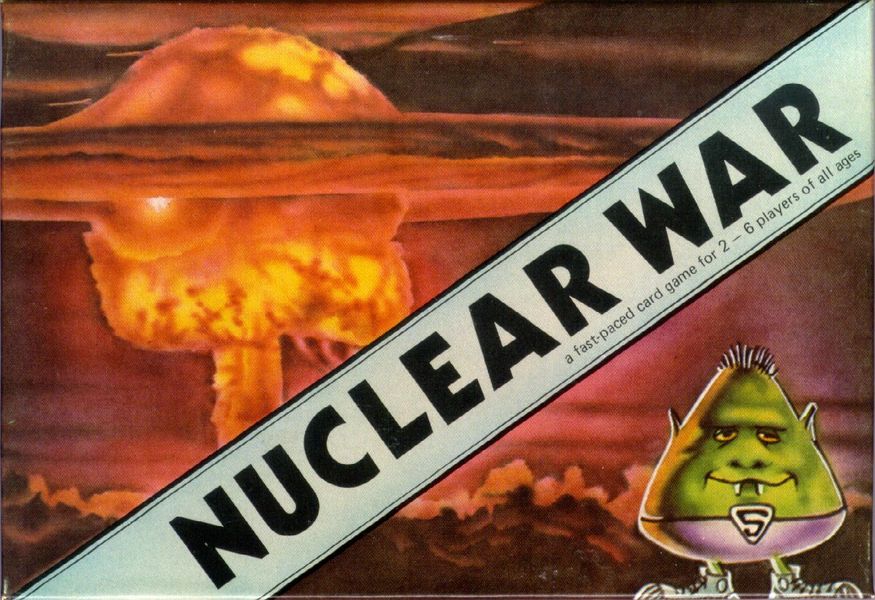Nuclear War (1965) Board Game
Nuclear War is a card game that was first released in in 1965. It is a satire on the nuclear arms race and Cold War politics, where players take on the roles of various world leaders trying to destroy each other’s populations with nuclear weapons. The game has gained a cult following over the years for its dark humor and strategic gameplay.
Game Components of Nuclear War
How To Setup Nuclear War
To set up the game, a random player is selected to go first. Each player is dealt a starting population determined by a random distribution of population cards. The remaining population cards are placed in a central bank. The Nuclear War deck is shuffled, and nine cards are dealt to each player. The remaining cards form the draw pile. Players then play all secret and top secret cards in their hand, discarding them and drawing replacements until their hand contains no more secret or top secret cards.
Gameplay Mechanics and Game Objective
Player Experience
Nuclear War is often described as a fast-paced, fun, and easy-to-learn game. However, its dark and satirical theme, reflecting the Cold War era, may not appeal to everyone. Players appreciate the simple yet engaging mechanics, making it a great “beer and pretzels” game. The game’s components, especially in the 50th Anniversary Edition, are of better quality compared to earlier versions.
Pros
Cons
Personal Thoughts on Nuclear War
Nuclear War is ideally for those who enjoy satirical and thematic games that reflect historical tensions. It’s perfect for players looking for a lightweight, fast-paced game with deep strategic elements. However, it may not be the best fit for players seeking a more serious or family-friendly game experience. The game’s unique blend of dark humor and strategic depth makes it a standout in the world of board games, especially for those who appreciate its historical and cultural context.
We are supported by our audience. When you purchase through links on our site, we may earn an affiliate commission, at no extra cost for you. Learn more.

